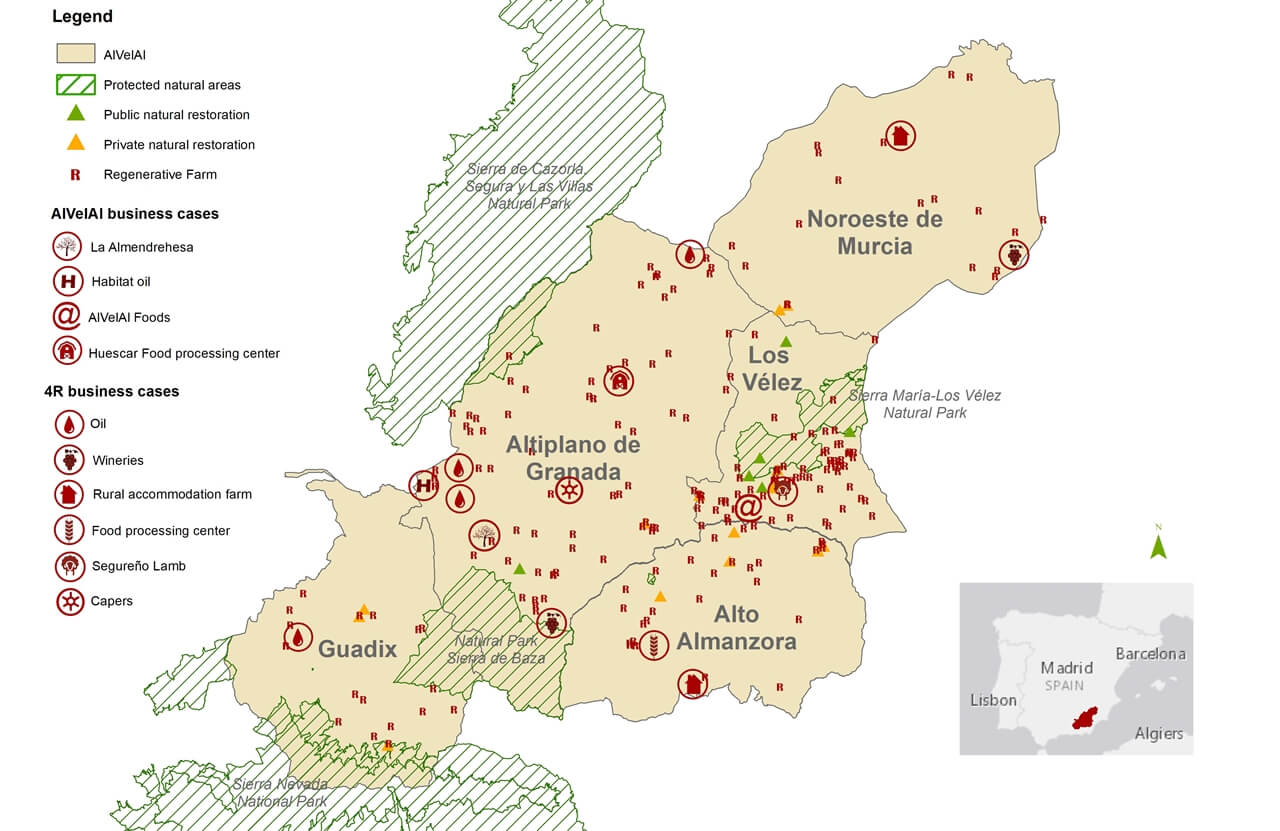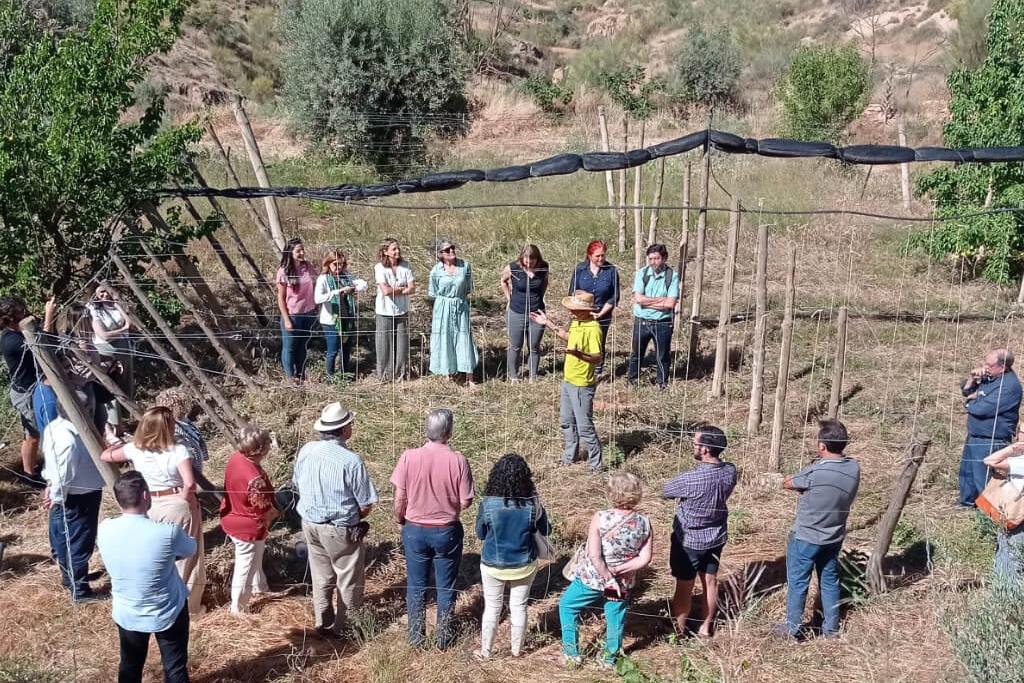LANDSCAPE PARTNERSHIP
LANDSCAPE
- Altiplano Estepiario, Spain
The AlVelAl landscape unites the 5 regions of the Altiplano Estepiario in the Southeast of Spain: Altiplano de Granada, Los Veléz, Alto Almanzora, Guadix and the Northwest of Murcia. In this semi-arid steppe —a transition between desert and forest— water is and always has been scarce. The mountains, countryside, steppe sub-deserts, valleys and meadows of this landscape are naturally challenging areas to produce food and regenerate vegetation.
In spite of this, the region’s indigenous communities have a rich history rooted in agricultural and farming traditions. The territory is known worldwide for its production of high-quality rainfed almonds and for the herding of Segureño lamb, an activity with a protected geographical indication.
Faced with threats of depopulation, desertification, and lack of opportunities, the AlVelAl association formed in 2014, igniting a movement that brought farmers, livestock breeders, businessmen and women, traders, researchers and citizens together to build a more prosperous future for the landscape. Together, the LP promotes the regeneration of the landscape through the restoration of ecosystems, regenerative agriculture and economic revitalization.
AlVelAl has already established a 20-year master plan to support the ongoing transformation of the Altiplano landscape. The use of collaborative methods such as participatory mapping, joint assessments of challenges and opportunities and the co-development of business cases has been key to arrive at this strategic roadmap. AlVelAl joined 1000 Landscapes as a seasoned veteran of implementing the landscape approach in their partnership hoping to offer insights and guidance to the initiatives budding landscape partnerships while strengthening its own.

Landscape Snapshot
AREA
The Altiplano is a semi-arid steppe: a transition between desert and forest. There’s too little rain for a forest to grow but the soil is too moist for deserts. So, on this high plateaued landscape, water is and always has been scarce.
Today the economy is still mainly based on agricultural activity. Yet as the soil is low on organic matter and has a low depth, the capacity to retain water is limited. Climate extremes such as high temperatures and torrential rains erode topsoil so dramatically that 20 tons/hectare of soil is lost per year.
Yet there is a huge opportunity for the region. Along with its renowned almond production and raising of the protected Segureño lamb, there is great potential to establish sustainable business cases which are founded on practices that replenish soil, water and lead to a healthy landscape.
Find more information about AlVelAl here.
Predominantly agriculture and Livestock. Some services: tourist, industrial, educational, commercial
Almond (100,000 ha of almond trees), Olive for olive oil, Pistachio, Nuts, Cereal (wheat and barley), aromatic plants, grape for wine, Honey, Some fruit trees (plums, cherries, peaches, apples), Vegetables (lettuce, broccoli, cauliflower, collard greens), lambs for meat, goats for milk, pigs, chickens
Marble
Semiarid Steppe Plateau with different landscape units: mountains, countryside, steppe sub-deserts, valleys and meadows.
- ALVelAl
The AlVelAl Landscape Restoration Strategy is based on the 4 returns – 3 zones – 20 years model developed by the Commonland Foundation.
These issues and challenges led Commonland and AlVelAl to harness this opportunity by piloting an area where landscape restoration measures can be implemented in order to mitigate the aforementioned problems, while at the same time generating employment and creating opportunities. Since 2015, AlVelAl has therefore rolled out initiatives designed to facilitate and transition farmers to regenerative farming in the region. This has since led to a substantial increase in the number of farmers today engaged in regenerative practices, including making swales, restoring terraces, planting green cover and creating windbreaks for soil and water retention and to enhance biodiversity. In 2016, AlVelAl launched its first business case, La Almendrehesa, to process and market regenerative produce from the region, allowing them to invest in their farms and to fully transition to regenerative agriculture.
In 2021 AlVelAl and the Aland Foundation joined forces to work together on the restoration project in the AlVelAl territory and to inspire other landscape restoration initiatives on the Iberian Peninsula.
Aland is a foundation that works to promote landscape regeneration initiatives through the 4 Returns, which fight against climate change, land degradation and biodiversity loss, and the lack of opportunities in rural areas; In the Iberic Peninsula.
Its objective is to create a movement that inspires initiatives that work on the regeneration of the landscape through business cases with a positive social, economic and environmental impact. To do this, it is based on the model of the large-scale landscape restoration project developed by the AlVelAl association and works as a catalyst for it to support this work of regeneration of the territory that it is developing.


